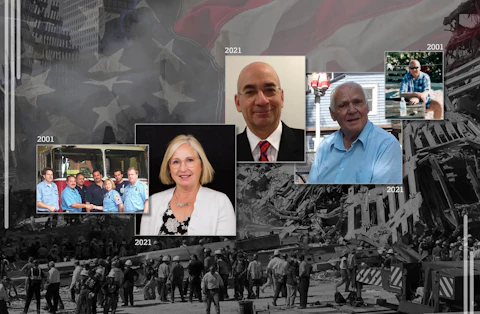Professor responds that students “don’t have to agree with me, but they do have to think.”
Critical race theory is barely taught in Wisconsin schools, but that didn’t prevent Republican state senators from inviting conservative activists to speak Wednesday at a committee hearing about the previously obscure legal theory that has dominated the nation’s cultural debate for months.
The GOP-controlled Senate Committee on Universities and Technical Colleges held the hearing to specifically explore how and whether critical race theory is present in UW System curricula, and whether students can be penalized for disagreeing with the theory. The theory itself is an examination of systemic racism’s role in American society, particularly in the legal system.
The theory began among legal scholars 50 years ago and has only become a common term in the past year once conservative activists and former President Donald Trump began misusing the term to describe virtually any mention of anti-racism, diversity, or equity in response to the historic protests against racism and police brutality in the summer of 2020.
The hearing’s first speaker was Christopher Rufo, the conservative activist who manufactured the recent outrage over critical race theory and has publicly boasted about how he has corrupted the term. “We have successfully frozen their brand—’critical race theory’—into the public conversation and are steadily driving up negative perceptions,” Rufo tweeted earlier this year. “We will eventually turn it toxic, as we put all of the various cultural insanities under that brand category.”

During the Senate hearing, he claimed people who practice what he calls critical race theory want to restrict freedom of speech because they push for more culturally sensitive teaching. He went on to claim critical race theory encourages “collective guilt” among white students by teaching them how American society systematically advantages white people.
“If you share the same ancestry as someone who committed a historical crime or injustice, you should inherently feel a sense of guilt, shame, or responsibility for that historical crime,” Rufo said. (Critical race theory does not teach that.)
Another speaker, Max Eden, a research fellow with the conservative American Enterprise Institute, said critical race theory “is an attempt at founding a new civil religion” because it looks down upon racist speech and behavior.
“This is purely made-up political outrage,” Sen. Chris Larson (D-Milwaukee), a member of the committee, told UpNorthNews via text. “I do appreciate that he just came out and decried those speaking out against racist speeches. Makes things pretty clear for who he’s speaking up for.”
Three educators from different UW campuses were also present to answer questions and dispel myths about critical race theory. The theory, they said, is indeed present in some graduate-level law courses at UW-Madison and elements of it are taught in courses at other schools. The educators said students are free to disagree with the teachings, but that they challenge the students to make well-researched arguments.
“I want them to be critical thinkers,” said Frank King Jr., an associate professor of ethnic studies and executive director of diversity, equity, and inclusion at UW-Platteville. “They don’t have to agree with me, but they do have to think.”
As other educators have argued, John Zumbrunnen, vice provost for teaching and learning UW-Madison, said challenging topics—such as race and racism—are necessary for educators to cover in the world today. Referring to UW-Madison’s saying of “fearless sifting and winnowing” for the truth, Zumbrunnen said “it is both easy and basically meaningless to be ‘fearless’ when there’s no discomfort, no risk.”
“Generally, I would argue that the current debate isn’t about critical race theory as a legal theory,” Zumbrunnen said. “It’s instead about what and how we should be teaching about race and racism in the United States.”
UPDATE: A paraphrase of John Zumbrunnen’s thoughts has been updated.





